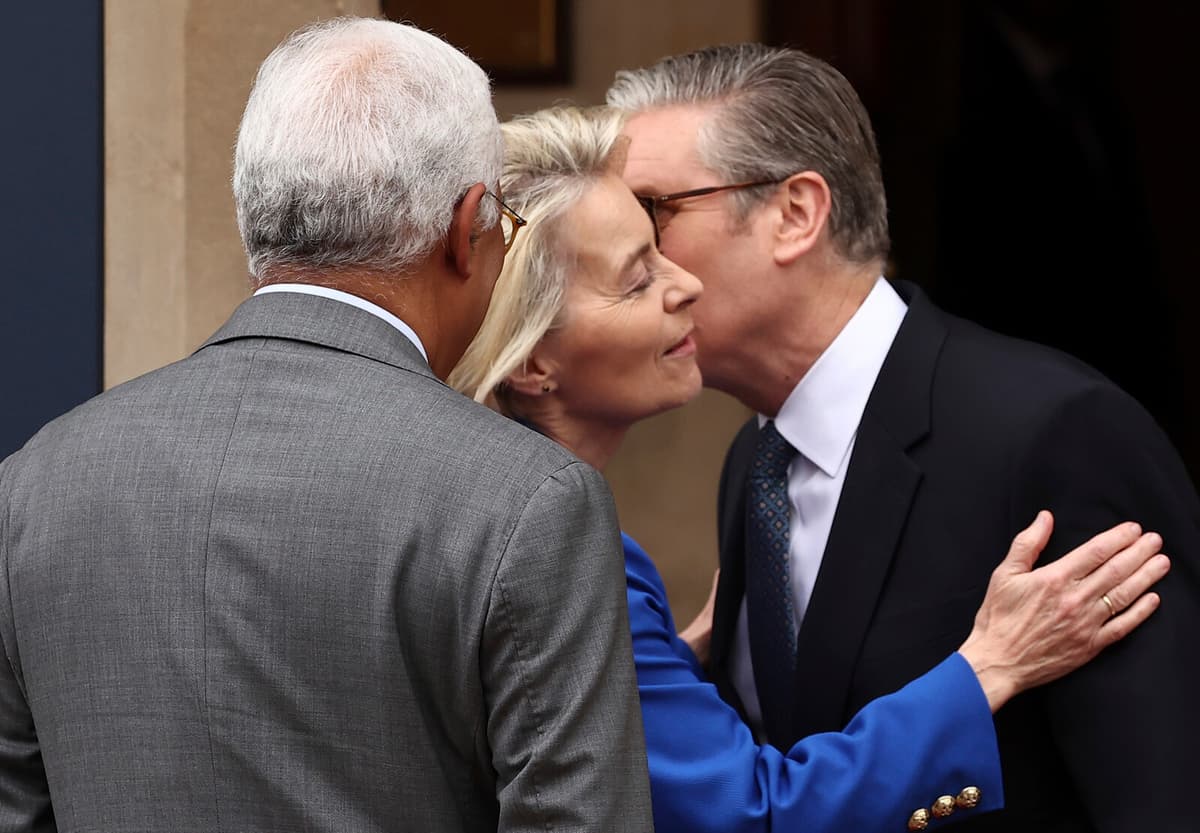After intense negotiations over the entire weekend, the EU countries' ambassadors could finally give a thumbs up early on Monday morning.
This day is about moving forward from stiff old debates, we look forward, not backward, focusing on what we can do together to deliver in national interest, says Starmer to his EU guests at a subsequent top meeting inside Lancaster House in London.
Great Britain and the EU are coming together again. We are stronger when we act together, responds the EU Council President António Costa.
The meeting is the first formal top meeting between the EU and Great Britain since the British left the EU in 2020.
Fishing and Mobility
Monday's package consists of a joint statement, a cooperation and security agreement, and an understanding agreement.
In parallel – and actually among the most important – is a political settlement on mutual access to each other's fishing waters until June 30, 2038.
Other parts will facilitate more and easier trade with food and electricity across borders. Additionally, one hopes to connect the EU's and Great Britain's systems for trading emission rights.
The opportunities for young people to move and study across the Brexit border will also become better – even if no full settlement on, for example, quotas and tuition fees is not yet in place. The hope going forward is to get Great Britain into the EU's Erasmus Plus exchange.
Defense Funds
A large part of the settlement deals with geopolitical cooperation, where the EU and Great Britain express joint opinions on everything from NATO and the conflicts in Ukraine and the Middle East to the view on rule-based world trade and the Paris Agreement on climate change.
The agreement will also make it possible for British companies to take part in funds from the European defense fund Safe.
Foreign and security meetings will be held between British ministers and the EU's foreign chief once every six months. Top meetings in the same style as on Monday will take place at least once a year.
That the current British government wants a better relationship with the EU does not mean that all old Brexit wounds have now healed.
Have you sold out Brexit? Have you sold out British fishermen? are shouted, for example, from EU-skeptical parts of the British press corps to Starmer and his guests.
Great Britain was part of the EU from January 1, 1973, to January 31, 2020.
The exit occurred since a narrow majority of Britons voted for "Brexit" – to leave the EU – in a referendum in June 2016.
Subsequently, tough negotiations followed, which finally landed in a series of agreements that handle the exit and the relationship between the EU and Great Britain.






